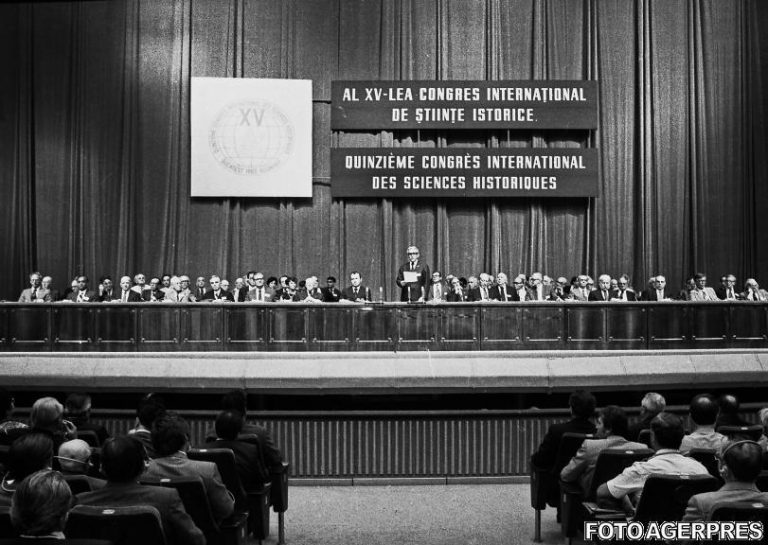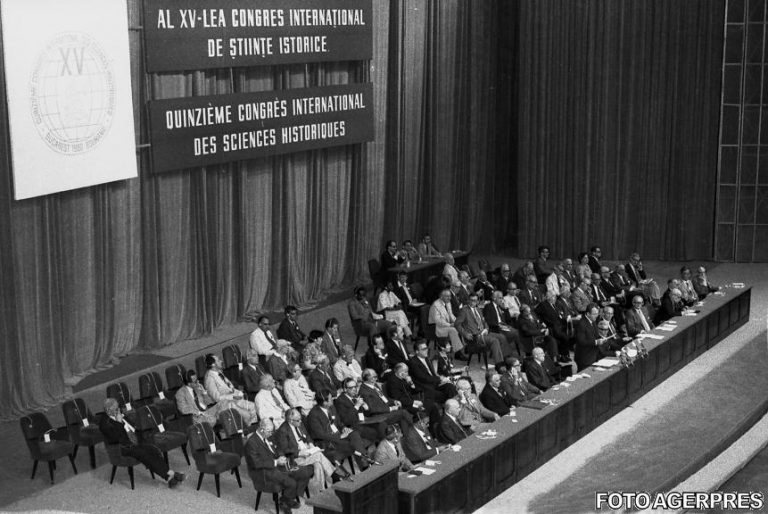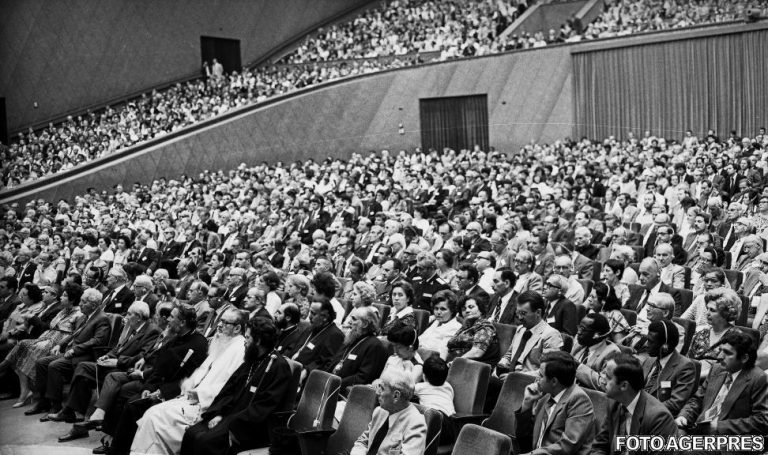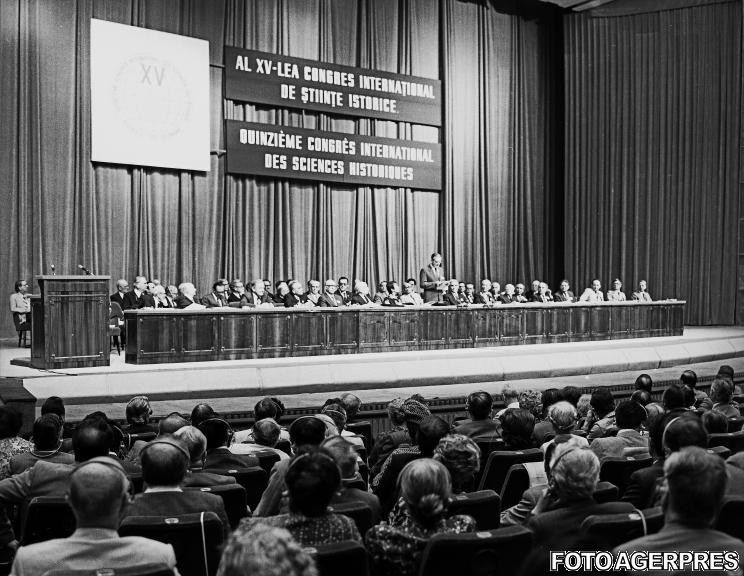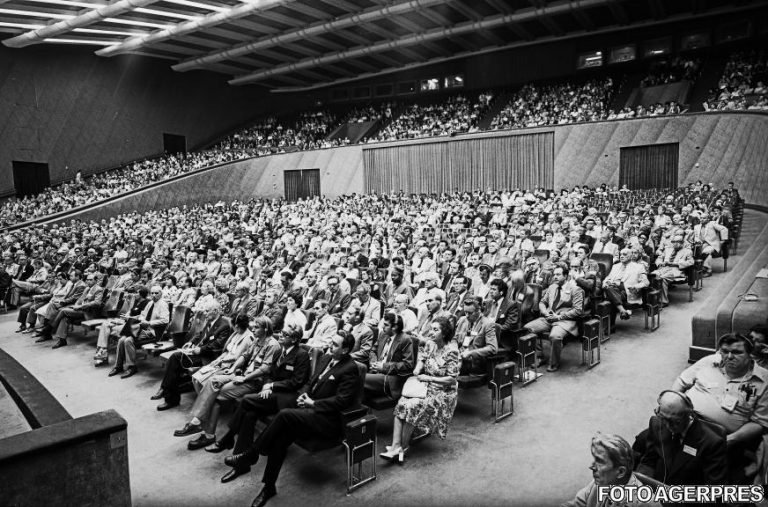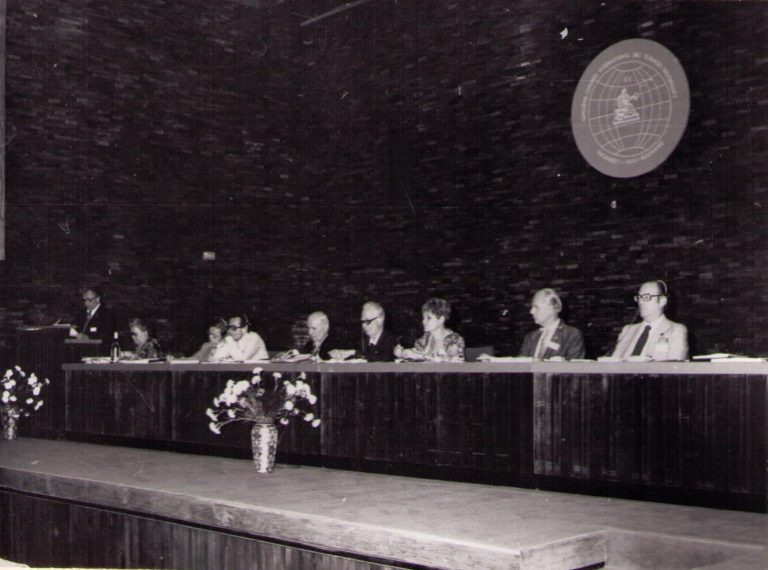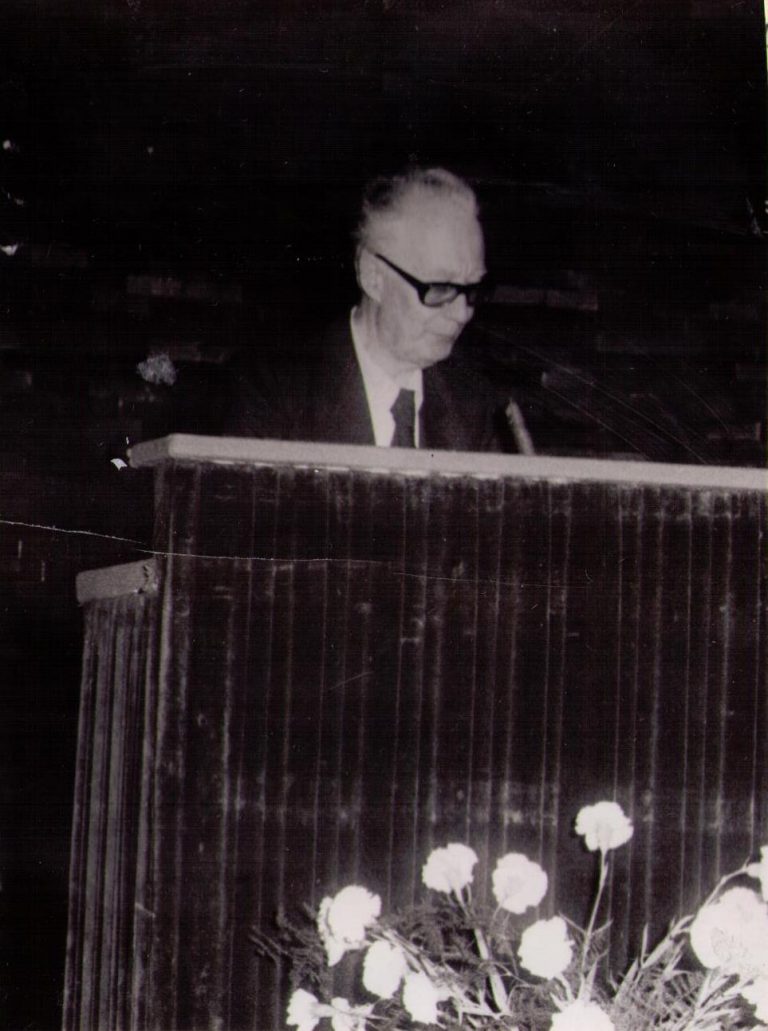On August 10-17, 1980 in the Romanian capital, Bucharest, XV International Congress of Historical Sciences took place. At the head of the Organizing Committee was the chairman of the Romanian Academy of Social and Political Sciences Mihnea Gheorghiu.
Over 2,400 historians from 67 countries took part in the Congress. The largest number of participants came from Romania (648), the United States (141), the USSR (116), Japan (108), Bulgaria (106) and France (100). Numerous were also delegations from German Democratic Republic (98), Spain (94), Federal Republic of Germany (90), Hungary (89) and Poland (75).
During the opening ceremony a letter sent by the Romanian President Nicolae Ceauşescu was read out. Vladimir Stepanek, a representative of UNESCO, also took the floor. The lectures at the opening ceremony were delivered by Karl Dietrich Erdmann, president of the International Committee of Historical Sciences, who spoke about the ecumenical community of historians, and Ştefan Pascu, chairman of the National Committee of Romanian Historians, who presented the genesis of Romance nations.
The program of the Congress consisted of 144 sessions divided into three thematic groups: 4 so-called Major Themes, 4 methodological panels and 4 chronological sections. First of the Major Themes was devoted to Eastern Europe as an area of the encounter of civilizations, the second concerned the problem of peace and its forms over the centuries, the third federalist and pluralistic countries, and the fourth the place of women in society.
Methodological sessions concerned the issue of the language of historical narrative, the significance and role of historical education, the problems and methods of oral history, as well as the questions of demography, epidemics and ecology.
The chronological sections were divided into antiquity, the Middle Ages, modern times and contemporary history. Historians of ancient times and medievalists first of all discussed about East-West relations, civilizations and societies, as well as social and economic changes. With regard to the modern era, three problems were stressed: relations between continents and nations, relations between ideas and societies, and the economy. The section of current history focused on four subjects: international relations, relations between domestic politics and economy, societies, as well as work and management in industry in the 20th century.
During the Congress took place also numerous meetings of commissions and organizations affiliated with ICHS (e.g. International Association of Byzantine Studies, International Economic History Association, International Association for Legal and Institutional History, African Historians Association, International Commission of History of Social Movements and Social Structures, International Commission for the History of Towns, International Commission for Historical Demography, International Commission for Diplomacy) and not affiliated associations (including the European Association for Contemporary History, the Working Group on the Application of Mathematical Methods in History). At the Congress was established the International Commission for Historiography.
During the closing ceremony of the Congress, Aleksander Gieysztor (newly elected chairman of the ICHS) summed up the debate and thanked Romanian hosts for good organization.
The Congress in Bucharest resulted in numerous publications – collections of papers and special volumes of journals published by some national committees. For example Romanian historians have published special issues of “Nouvelles études d`histoire” (1-2 / 1980), “Revue des Études Sud-Est Européennes” (2/1980), “Revista de Istorie” (7-8 / 1980), “Revue Roumaine d`histoire” (2-3 / 1980). Hungarian historians have prepared two volumes of the series “Études historiques”, and the Polish historians a volume “La Pologne au XVe Congres International des Sciences Historiques a Bucarest. Études sur l ‘histoire de la culture de l’Europe Centrale-Orientale”.
Bibliography:
- National Archives, National Historical Central Archives Service, Contemporary Archives Bureau, Fund of the Central Committee of the Romanian Communist Party – Department for Propaganda and Agitation, files 11/1980, 25/1980, 28/1980
- D. Berindei, The 15th International Congress of Historical Sciences and the Participation of Romanian Historians, „Revista de Istorie”, t. 33 (1980), no 10, s. 1839-1855
- XVe Congrès International des Sciences Historiques, Bucarest, 10-17 août 1980. Rapports, vol.1-3, Bucharest 1980
- XVe Congrès International des Sciences Historiques, Bucarest, 10-17 août 1980. Actes, Bucharest 1982
- F. Constantiniu, De la Răutu și Roller la Mușat și Ardeleanu, Bucharest 2007
- I. Filipescu, Între propagandă și interes academic: Al XV-lea Congres internațional de științe istorice (București, 10-17 august 1980), „Arhivele Totalitarismului”, XXIV, no 90-91, 1-2/2016, s. 182-191
- D. Hurezeanu, The 15th International Congress of Historical Sciences in Bucharest (August 10-17, 1980), „Studii și articole de istorie”, 1980, no 41-42, s. 36-50
- Nouvelles études d`histoire, vol. 1-2, ed. Ș. Pascu, Ș. Ștefănescu, D. Berindei, Bucharest 1980
- E. Siupiur, Publications périodiques parues à l`occasion du XVe Congrès International des Sciences Historiques, „Revue des Études Sud-Est Européennes”, t. 19 (1981), no 1, s. 170-172
- The 15th International Congress of Historical Sciences (Bucharest, 1980). Documents, Information, Testimonies. (Documents, informations, témoignages), Bucharest 1980
- F. Velimirovici, Istorie și istorici în România comunistă (1948-1989), Cluj-Napoca 2015



